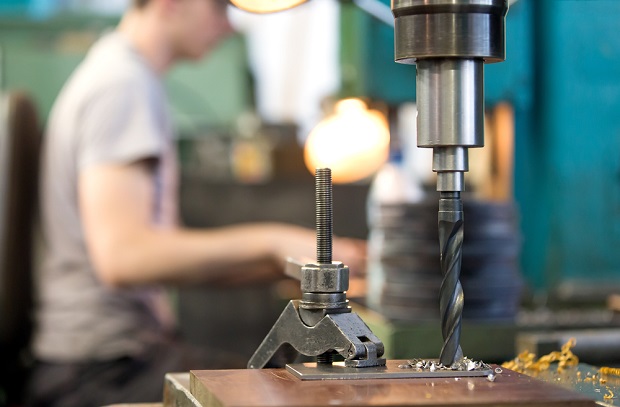Whether it is for drilling, milling or lathes; CNC machining has now become the benchmark in manufacturing industry. CNC stands for Computer Numerical Control. It is a machine with a computer attached to it. This computer operates the machine. All you need to do is to feed the commands or the tasks that you want the machine to do through computer through programming. The computer is provided with a keyboard through which you can program it. The entire job such as cutting the metal to required shape is done by the machine depending on the parameters that you feed in the computer. Since manufacturing industry requires high precision in jobs such as drilling or milling, making complex parts, providing threads, slots, holes or chamfer etc. CNC machines are quite popular. In fact, using premium CNC machining has become mandatory in some areas of manufacturing.
 |
| CNC Manufacturing |
Since it is controlled by a computer, you do away with the operator and this reduces the human error that might otherwise creep into an operator controlled machine. The operator only has to feed the program and the raw material into the machine. CNC machines do not require continuous monitoring either. You only need to ensure that you have fed the right commands, loaded the tools correctly and that raw material is being made available. The machines keep the machined parts as desired after completion of job and then pick up the next one on their own.
More About CNC Machining
CNC machines are very flexible since you only have to reprogram the unit to perform the desired task. The computational ability is much more than a human operator. It is more like a robot that is working at your command.
Common CNC machines include horizontal lathe, vertical lathe machine, vertical machining centre (three axis or five axis), milling machine. Apart from handling metals such as steel, aluminum or non ferrous metals, CNC machines can also handle plastics. Mould making, making signs, milling for printed circuit boards in electronics industry, making 3D models, wood processing etc. are some other areas of application of premium CNC machining.
 |
| CNC machining |
You can find the use of CNC machines in almost all manufacturing segments – particularly the ones handling precision parts. For instance, CNC machines are used for complex architectural models in 3D, models using PVC, polystyrene, aluminum, engravings on brass, glass, aluminum, steel, wood , engraving different kinds of fonts or thinning of fonts for making stamps, engraving on wood, making designs and chamfers on wood, milling of front plates on electronic items such your CD player, drilling holes on PCB, drilling and making panels, producing prototype PCBs, cutting of foam, rubber, plastics, plasma cutters for cutting steel, are just some of the areas of applications of CNC machines.
CNC machines now use highly automated systems with computer aided design and manufacturing. The common programming language used to feed code is known as G-Code which controls the input of raw materials, coordination amongst various tools, speed of processing etc. Some manufactures of CNC machines provide their own proprietary code that is simple than the G-code. However, these proprietary codes cannot be used on machines of different manufacturers.
To Summarize, CNC Machining is:
- Error free
- Suitable for jobs requiring high accuracy
- Effective for repetitive kind of jobs. You only have to load the program once and this can be repeated any number times
- Suitable for making complex shapes and parts
- Suitable for making complex 3D architectural model
Premium CNC machining ensures that you are able to do your job with complete accuracy, no matter how complex the job might be. Moreover, you can go through this link to know more about the premium CNC machining.









0 comments:
Post a Comment
Note: only a member of this blog may post a comment.